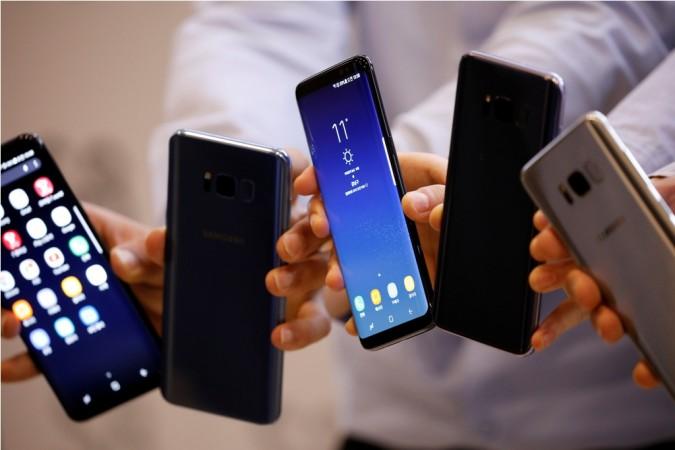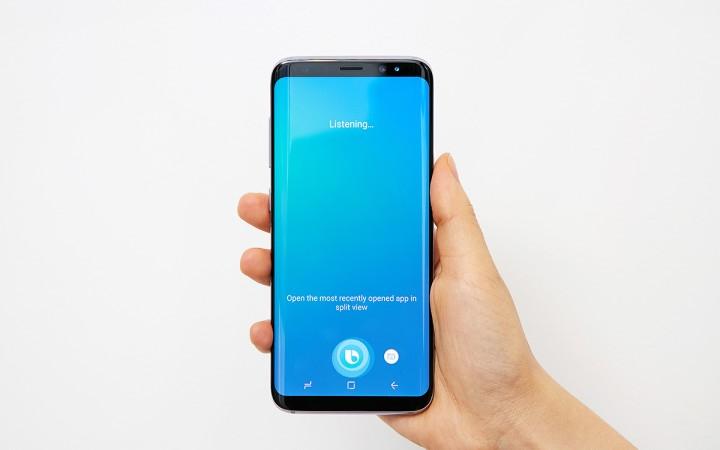
Samsung Galaxy S8 and S8+ mean a lot for the South Korean conglomerate. The company is counting on the latest flagship not only to help it recover from the unforeseen Galaxy Note7 crisis, but also to strengthen its foothold in emerging markets like India where it is facing fierce competition from a glut of young Chinese players.
Giving Samsung an ideal start, pre-orders for the Galaxy S8 has already exceeded 1 million units in South Korea -- the highest-ever figure for a new Samsung smartphone in its home turf. In comparison, the Galaxy S7 took over a week to cross 200,000 pre-orders while the doomed Galaxy Note7 took over 13 days to reach the 400,000 mark.
Also read: How Apple is preparing to take on Galaxy S8
The latest pre-order figures came after last week's announcement by Dong-jin Koh, the president of Samsung's Mobile Communications Business, that pre-orders for the Galaxy S8 surpassed 720,000 units in just seven days in South Korea.
Market analysts believe that nearly 70 to 80 percent of the Galaxy S8 pre-orders will account for actual sales, leading many to estimate that Samsung will be able to sell more than 40 million units of the new phones in the country. Samsung, on the other hand, has set its own target at 60 million units, which is significantly higher than the 52 million units the company sold of the Galaxy S7.
India is a different battleground
Samsung has already started shipping the Galaxy S8 and S8+ devices for those who had purchased it through pre-orders that run between April 7 and 17 in South Korea, Canada and the United States. While the pre-orders in India will begin on April 19, the official launch of the new phones is set to commence on April 21.

While Samsung is an undisputed heavyweight in South Korea, it will be a completely different battleground altogether in India, where Chinese brands are so dominant that have muscled out local rivals to corner nearly 50 percent of the Indian smartphone market in the last quarter of 2016. Samsung's share, on the other hand, dropped to 24 percent from 29 percent in the same period a year earlier.
Although Samsung continued to lead the smartphone market in Q4 2016 and its annual shipments grew 3.2 percent in 2016, the major contributor to this feat was the low-cost J-series. According to International Data Corporation, it was the Galaxy J2 which drove the show, accounting for almost half of Samsung's total shipments in the October-December quarter last year.
India is price-sensitive, and Chinese rivals knows it well
Chinese companies, on the other hand, had a different strategy. In a value-conscious market like India, decent specifications at a reasonable price has turned out to be the winning formula for these Chinese vendors, who reportedly accounted for less than a fifth of the $10 billion Indian market just a year ago.
"Chinese brands OPPO, vivo, Lenovo and Xiaomi continued to grow at the expense of Samsung and Indian brands. Their success was attributable to a variety of factors including strong marketing and channel push, as well as better access to components that were in limited supply," Counterpoint, a market research firm, said in a report.

Apple is premium and will always be
So it's obvious that with an estimated price tag of about Rs. 50,000, the Galaxy S8 will be Samsung's new contender for the premium segment, which is led by Apple.
The iPhone-maker, which captured the 10th position in the overall smartphone rankings during Q4 2016, topped the high-end segment (above $450) with 62 percent market share.
This was a massive setback for Samsung as it was the premium smartphone leader in the preceding quarter, but lost its top spot primarily due to the failure of the Galaxy Note7. Due to its worldwide recall, the ill-fated handset never really made it to India.
Apple and the Chinese brands grew over the last few quarters mainly at the expense of Samsung and Indian brands. While a perfect blend of price and features will help Samsung maintain its lead in the mid-range segment, the Galaxy S8 is likely to battle it out not only with Apple's existing offerings but also the upcoming iPhone 8 to regain its lead in the premium segment.

















